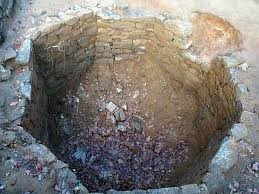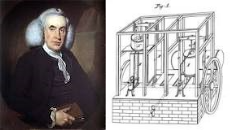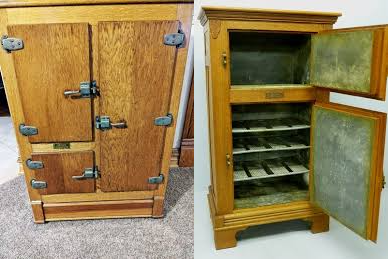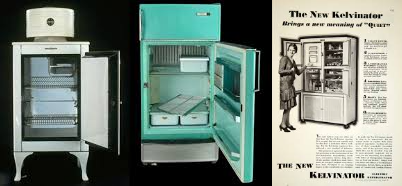Explore the fascinating history of how the refrigerator was invented and evolved into the modern appliance we use today. Learn about the breakthroughs, innovations, and technological advancements that have shaped refrigeration technology over the centuries and the environmental considerations driving sustainable practices in refrigeration.
The refrigerator, an indispensable appliance in modern households, has revolutionized the way we store and preserve food. But have you ever wondered about its origin and the fascinating journey of its invention? Let’s delve into the intriguing history of how the refrigerator came to be, tracing its evolution from ancient icehouses to the sophisticated appliances we use today.
Ancient Roots: The concept of refrigeration dates back to ancient civilizations, where people stored food in naturally cold environments such as caves, underground cellars, and icehouses. These early methods relied on insulation and the natural properties of ice to keep food fresh for extended periods.

Early Attempts: The modern refrigerator as we know it began to take shape in the 18th century with pioneering experiments by scientists and inventors. One notable figure is William Cullen, a Scottish scientist who demonstrated the principle of refrigeration in 1748 by evaporating ethyl ether in a partial vacuum to create cooling effects.

Breakthroughs and Innovations: The 19th century witnessed significant advancements in refrigeration technology, fueled by the growing demand for food preservation. In 1805, Oliver Evans designed the first refrigeration machine, which used vapor-compression to cool air. This laid the foundation for subsequent innovations by inventors like Jacob Perkins, who patented the first practical refrigerator in 1834.

Perkins’ design used a closed cycle of compressed ether to remove heat from the interior, allowing for effective cooling. Although his refrigerator was bulky and expensive, it marked a significant milestone in the development of refrigeration technology.
Commercialization and Mass Production: The late 19th and early 20th centuries saw the commercialization and mass production of refrigerators, making them more accessible to households. Companies like General Electric and Frigidaire played pivotal roles in popularizing refrigerators as essential kitchen appliances. The introduction of electric refrigerators in the 1920s marked a significant milestone in the evolution of refrigeration technology.

Technological Advancements: In the following decades, refrigerators underwent continuous improvements and innovations. The development of automatic defrosting, adjustable thermostats, and improved insulation materials enhanced their efficiency and usability. The introduction of household refrigerators with freezer compartments further expanded their utility, allowing for long-term storage of frozen foods.

One of the most significant advancements in refrigerator technology came with the development of Freon, a non-toxic, non-flammable refrigerant, by Thomas Midgley Jr. in the 1920s. Freon replaced hazardous substances like sulfur dioxide and ammonia, making refrigerators safer and more efficient.
Modern Refrigeration: Today, refrigerators come in various sizes, styles, and configurations to suit the diverse needs of consumers. Advanced features such as smart connectivity, energy efficiency, and environmentally friendly refrigerants have become standard in modern refrigeration technology. From sleek French door models to compact mini-fridges, there is a refrigerator to fit every lifestyle and kitchen design.

The advent of smart refrigerators equipped with internet connectivity and touchscreen displays has transformed the way we interact with these appliances. Smart features allow users to remotely monitor and control their refrigerators, receive notifications about food expiration dates, and even access recipes and grocery lists.
Environmental Concerns and Sustainable Practices: While refrigerators have greatly improved our ability to preserve food, they also pose environmental challenges, particularly concerning energy consumption and refrigerant emissions. In recent years, there has been a growing emphasis on developing environmentally friendly refrigeration technologies and promoting sustainable practices.

Manufacturers are increasingly incorporating energy-efficient components and eco-friendly refrigerants into their refrigerator designs to minimize environmental impact. Additionally, initiatives such as energy efficiency standards and consumer education campaigns aim to encourage responsible usage and disposal of refrigeration appliances.
Conclusion: The invention and evolution of the refrigerator represent a remarkable journey of human ingenuity and innovation. From ancient icehouses to cutting-edge appliances, refrigeration technology has undergone a transformative process driven by the quest for better food preservation and convenience. As we continue to push the boundaries of technology, the refrigerator remains an essential cornerstone of modern living, shaping the way we store, preserve, and enjoy our food.